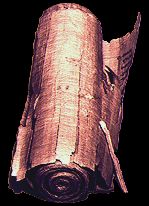

2. All applicants for membership shall be approved by a majority vote of the membership present at a business meeting.
2. The President’s primary role, in addition to the functions otherwise mentioned in these bylaws, will be to preside over the meetings and to take whatever measures he deems necessary and prudent to safeguard the society’s primary goals, and to promote its successful continuation and progressive expansion. The President shall appoint an archivist for a term of five years, or a replacement in case the archivist cannot complete his or her term. The President is also empowered to appoint committees and chairmen of committees. Of these committees, there shall be a program committee composed of the President as chairman and two other professional philosophers. These committee members shall be rotated.
3. The Vice-President’s role will be to preside over the meetings in the absence of the President and to assist the President whenever such assistance is requested.
4. The Secretary-Treasurer’s role will be to take charge of all official correspondence involving the society. He will record the minutes of each meeting, make official deposits and withdrawals in a special checking account, prepare an annual report on the society’s financial standing, and compile a list of constituent and collegiate members to be circulated among the members themselves.
2. The meetings will consist of a formal presentation of a minimum of two papers, by invitation, followed by a discussion of the papers open to all present, and a business session to discuss any administrative affairs before the society.
2. All officers will be elected through parliamentary procedure. Following nominations, a ballot will be taken. The candidate with the greatest number of votes will be elected. In the event of a tie, the candidates involved in the tie will be presented anew for a second or third ballot until the tie is broken. In the event of only one candidate being nominated for office, a majority of those members present will be sufficient to elect him to office.
3. These bylaws may be amended by a two-thirds (2/3) affirmative vote of the constituent members present or voting by mail. A proposal for amendment may be submitted a any regular meeting, but no vote of adoption or rejection shall be taken on the proposal until the next regular meeting.
Note on the Archivist’s Activities
The archivist should collect, maintain, and on member’s request make available, copies of the papers of the society, especially copies of programs, minutes, and Treasurer’s reports. He should do likewise with such other material as may be available and deemed relevant to the functioning and history of the society. Such material may include, but not be limited to, copies of correspondence, membership lists, talks given at meetings, testimony delivered on behalf of, or in the name of, the society, grants and programs proposed by the society, and reports requested or issued by the society or any of its committees.